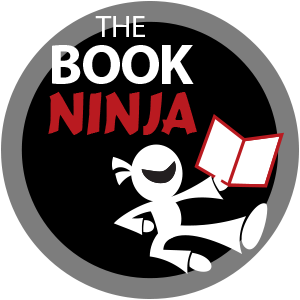An LCCN, or Library of Congress Control Number, is a number libraries use to look your book up in their databases. If you’re self-publishing your book and want your book easily found, ordered, and stocked in libraries, you’d think the answer to this question would be a simple, “Yes, I need one.” However, like most things in publishing, there’s no one right answer. Each library, like each bookstore, has its own requirements. And you may discover your book’s target market doesn’t hang out at their local library or borrow books, so you may not need an LCCN.
Library Requirements
Before going through the sometimes confusing process of applying for an account with the Library of Congress to register an LCCN for your book, you need to make sure your book meets basic library requirements to begin with.
First, is it going to be listed with Baker & Taylor, the primary distributor to libraries? (Hint: CreateSpace/KDP Print books are not listed with any distributor or retailer other than Amazon.com unless you select their expanded distribution option.) If your book is listed with Baker & Taylor, congratulations! You’re one step closer to seeing it in libraries.
Second, is your book in print format? While a few libraries are starting to stock eBook formatted books, most still rely on print format to stock on their shelves. Many libraries service impoverished areas where the people may not have access to Kindle readers or even computers. By publishing your book in print format, you’re another step toward seeing your book in libraries.
Is your book in hardback? While libraries will still stock paperback books (my library has a ton of them), they prefer hardbacks as hard-covered books hold up better to typical wear and tear.
Does your library have other requirements? Some libraries are run like a large corporation. They have a lot of red tape, and like big name bookstores your book may not meet their requirements for entry… or you yourself may not meet their requirements. Start with your local library, as they’re more apt to support local authors.
If your book meets all your local library’s requirements and your target market frequently visits libraries, then you should consider applying for an LCCN.
What about CIP?
Library of Congress Cataloging in Publication data is what you typically see on a mainstream-published book’s copyright page. This data is the traditionally-published version of the LCCN. To some librarians who only judge a book by its publisher, this data can be a requirement for entry on their already too-small shelves. Your local librarian may still have you in for a reading and/or book signing whether you have a CIP or LCCN.
In order to get a CIP, you need to have a minimum of three different authors published by your company traditionally. This means you can’t charge them for any aspect of the publishing process, even editing, and you should have a professional website showcasing their books. You also can’t use an anthology book and list all those authors who contributed one chapter each as individual book authors. Each book must have one author, and two of those authors must be people other than yourself.
If you want to take your publishing company to the next level and publish other authors traditionally, the CIP data can add an element of professionalism to any books you publish, including yours, and better your chances with libraries.
The Final Question
Do you need an LCCN? If you want your book to be accessible to libraries, yes, you do. Does that guarantee libraries will purchase your book and invite you in for a book signing? No. There are no guarantees in publishing. It’s a risky, fun, fly-by-the-seat-of-your-pants sort of business where many times only the strong thrive. Stick to your guns, and don’t let one library rejection keep you from pursuing your dream.
Do you want step-by-step instructions on how to properly set up your book for availability to bookstores and libraries? Check out my exclusive complete DIY self-publishing courses including Instant Self-Publishing Ninja in The Book Ninja Academy today!

